We’re going to veer away from some of the reader questions that we’ve been answering in the last few posts because there’s something that’s on my heart, and I think it’s important to talk about because it really does shape the way we do our work here in Haiti. What I want to talk with you about is the great responsibility that people like us have in the work that we do.
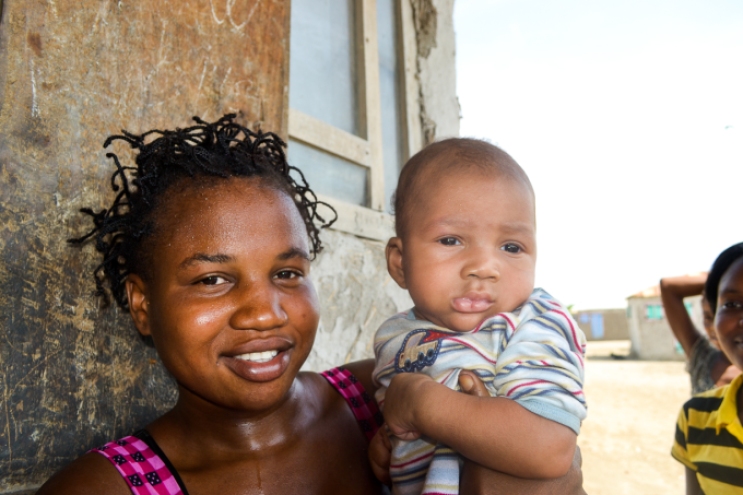
I think the idea of development is appealing to a lot of people. I think the majority of the human race all have an inborn desire to help their fellow man. It’s the reason that we respond with compassion when we know someone is in need. It’s the reason people get involved, initially, in development work. It’s why we have non-profit organizations for every need out there. And, it’s a good thing. But something can be good, and it can be not enough at the same time.
In the 10 years that I’ve been living and working in Haiti I’ve had plenty of opportunity to see humanitarian, missions, and development projects started. Some of them are really effective, but sadly a lot aren’t. That’s really a whole other series of posts, and isn’t what I want to focus on today. What I want to talk to you about is the fact that intentions are not enough, especially when we’re working in a capacity that directly affects people’s health.
There are a lot of household water filtration methods and tools out there. We, as an organization, have chosen to just work with one of those. We have a lot of reasons why we’ve chosen to work with the Bio-sand filters.
- They’re something we can build in country with local materials.
- We can use local labor in the construction, distribution and follow up – more impact for our donor dollars and helping in a broader way.
- The technology itself is great for Haiti because it takes a lot of factors into consideration, including education levels, resource availability, culture, maintenance and overall cost in relation to effectiveness.
- We can make them available to the entire population.
There are a lot more reasons, but those are the basics.
Like I said, there are a lot of other household water treatment options out there, and there are a lot of people implementing them all over the world, and that’s a great thing.
The problem arises when people don’t look beyond the actual implementation part. Implementation is a fancy word that we use in the industry that just means “put into use”. When we “implement” a filter we’re putting it into use in a home.
What we see happen in most cases here in Haiti is that an organization or group will decide that they want to help with the water issues here, so they look at options and decide to help get people some kind of filter. They decide what kind of filter to get, make arrangements to get a whole bunch of them, and then go and install them or distribute them. In theory this is a great and noble thing. Seriously. Where I struggle is not in the intention, but in how the whole thing gets done. How it gets implemented, if you will.
In most cases this work is being done by a group of visitors who are in country for a week or two. Often no one in the group has had any formal training on the technology itself. Yes, they may have had a crash course on how to install the filter, but most couldn’t actually tell you how it works. They couldn’t figure out what was wrong with it if it wasn’t working correctly, and they wouldn’t know how to fix it if they did know what was wrong. They come in, and maybe they’re working with local people in some capacity, but typically this is from a logistical perspective. The people here on the ground make all the arrangements for the group, and walk through the process with them.
Case in point, one January we were flying back to Haiti after our Christmas break. In the Miami airport we made ourselves comfortable in the boarding lounge, and not long after about 15 people wearing matching shirts came and sat right next to us. Their shirts were advertising that Haiti didn’t have clean water, so they were bringing it to the people. As is usual, because our family typically gets noticed, a couple of the team members started to make conversation. Eventually we got around to What do you do? We told them we run an organization that does Bio-sand filters. They got very excited and said, “That’s what we’re going to do! It’s really great. We’re going to install Bio-sand filters in people’s homes this week.” We smiled politely. Then they asked me how long we’d been doing this. “I’ve been there for 7 years” I answered. 7 months? they asked. “No, 7 years.” And then everyone felt uncomfortable and they started playing with their phones. I hadn’t been rude in the least. I’d been very kind. They felt uncomfortable because in that split second they realized that we did this every day, and they were going to do it for a week, and then leave.
Once the filters are distributed or installed, what happens then? Normally the group goes home.
Who does the family call if their filter isn’t working? Anyone? There probably isn’t anyone for them to call.
Does anyone visit the filter regularly to make sure that it’s still working correctly? In most cases the answer to this question, with any filter program is no.
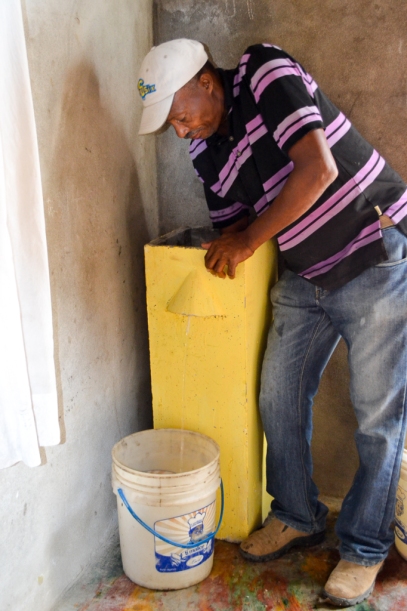
Please hear me when I say this – I’m not digging at people’s intentions. It’s not about that. Good intentions start with something deeper – the desire to help people. That’s a good thing. No, it’s not about intentions. For me, for us, it’s about loving people fully and well.
Hear me out.
When we’re sick, we go to the doctor, we don’t go to the grocery store and talk to the produce guy. We don’t do that because the produce guy isn’t a doctor. He’s not trained to diagnose and help heal. Need to know how to pick out the best tomatoes? Yes. Diagnosing that nasty rash? No. It’s obvious, right? You trust someone that has training and experience to help with a specific need.
When you are sick, you recognize that the human body is fragile, in the sense that if you do the wrong thing, were diagnosed with the wrong malady or were prescribe the wrong medication it can do a lot of damage. Doctors are required to swear to and abide by the Hipocratic Oath – first do no harm. That’s why no produce guy.
When we’re working with water filtration we are firstly working with people’s health, and we should want to do the very best we can in a way that will do no harm.
That’s it. There is no way around it.
If we want to love people fully, we should do the very best we can for them, even if that means putting our own needs aside. If the very best is to give them access to a tool that can improve their health, we should do that in the very best way we can. We should not do it half way, or in a way that could potentially lead to harm. If we do something really well, sometimes that means we have to put our own needs and desires aside to make sure that happens. If the best thing is to do it ourselves, that’s great. But, if the best thing is to support an organization that is trained to do it better then we ever could, even if it means we’re a bit more removed from the process, then we should go that route. Again, if we really want to love people, it means doing what’s best for them.
When we’re asking a family to adopt a filter, to use it every day, we’re asking them to trust us with their health. It’s not just about the idea of clean water. It’s about getting them something that won’t kill them.
Yes, I just said that. I said it because it’s true. I said it because when a filter is installed poorly, incorrectly, or doesn’t have adequate education or follow up we can literally be killing people. When we ask them to put confidence in any kind of water filter, we have a huge responsibility to make sure that it’s going to do it’s job, and do it well.
We’re asking mothers to trust that a filter is going to provide clean water for their babies. We’re asking families to trust that the filter is going to provide clean water for their older family members, or those with depleted immune systems that can’t fight off disease.
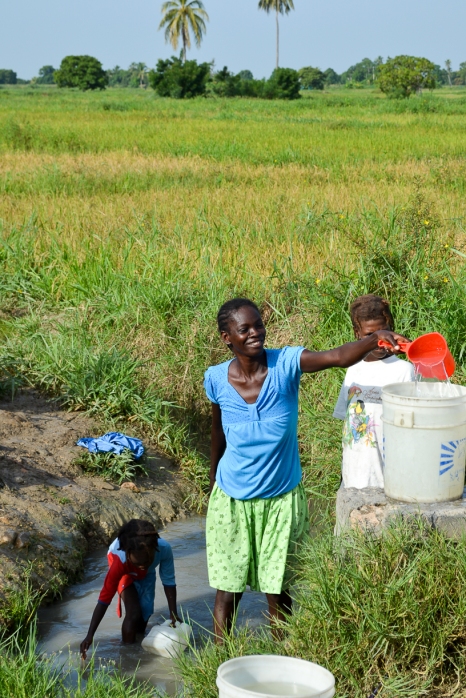
If we install a filter and the family doesn’t know how to use it properly, or it’s not installed and working properly, and they think it is, we can be causing a lot of damage.
That is a responsibility that is ever before us, and it’s one we take very seriously.
It’s the reason why every filter we install gets a form with all the needed information about the household and filter. It’s the reason those forms get entered into a data base so we can be tracking our technicians work and how we’re all doing our jobs. It’s the reason each filter gets three visits in the first year. It’s the reason each of those installations and follow up visits are done by a very well trained technician who works with the filters every. single. day. It’s the reason that we repair and replace broken filters for free. It’s the reason we welcome and get excited about research teams coming to check on our work, and listen to their results and use them to do it even better.
It’s also the reason why, when we get contacted by a well meaning group of people to ask if we can supply filters for them to install, we say no*.
We believe in our responsibility to do no harm. Water borne disease is a real thing. Illnesses, like Cholera, that can whip through a healthy persons body and kill them in 48 hours are a real thing.
If we do our job right, and well, people can trust that their filter is working properly and helping them to get healthy. If we don’t, and people are putting confidence in a filter that’s not actually properly removing all those disease causing microbes, they will get sick. And, they might die.
It’s a life and death responsibility. When people contribute to the work of Clean Water for Haiti, they can have confidence that we’re working from a place of deep love for the Haitian people that drives us to do what we do really well.
First, do no harm.
~Leslie
*We do like to tell them about our Vision Trips that will give them the opportunity to spend a week with us and work alongside our staff to learn about the whole process of building filters, and to go out on a delivery day to see how we install them and work with families. So, we’re not big meanies, we just work in a really specific way.
This post originally appeared on our old Clean Water for Haiti blog.


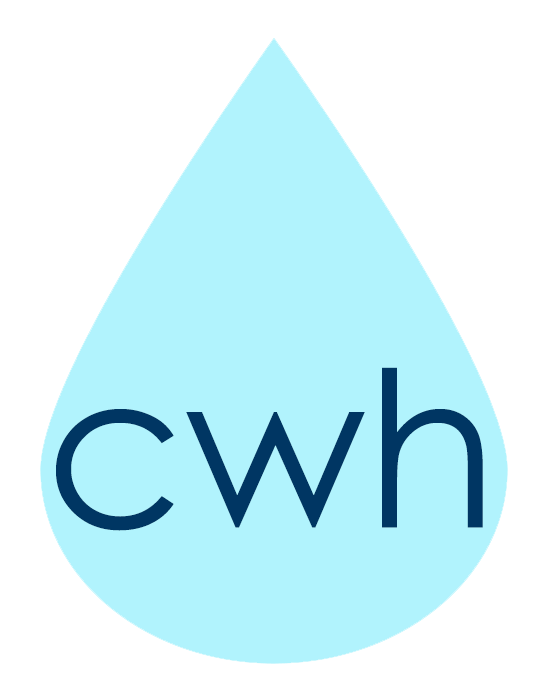
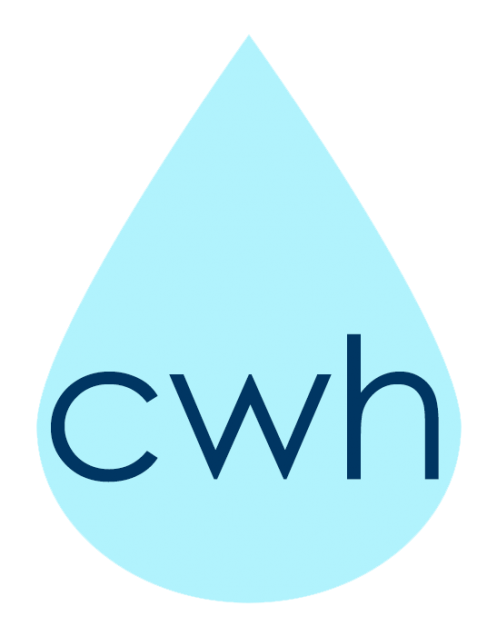
Leave a Reply